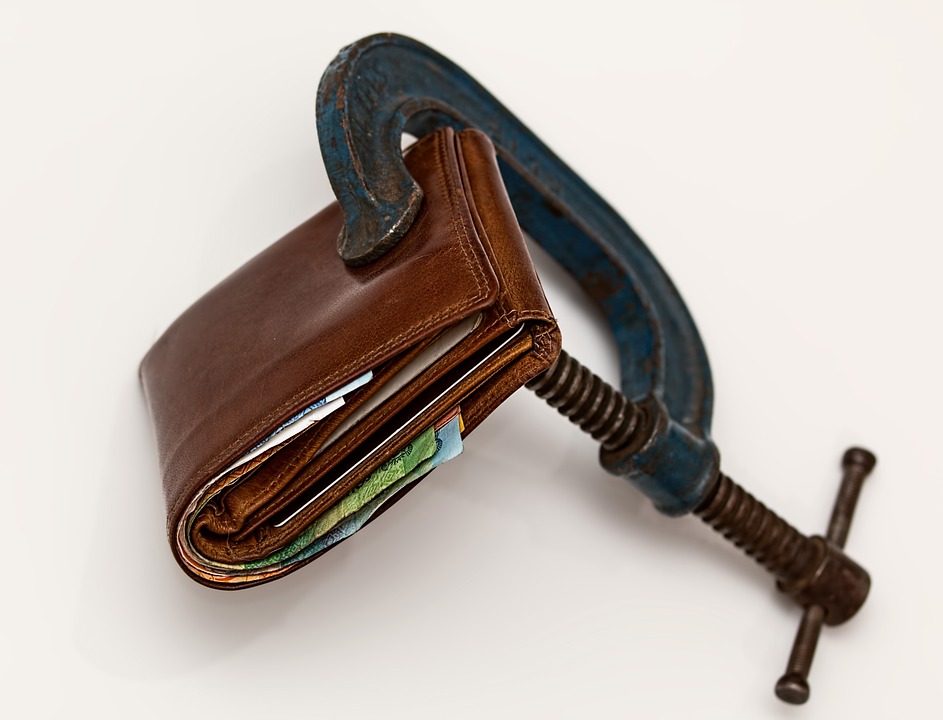Why Is an Emergency Fund so Important?
Life is full of unforeseen twists and turns. You plan for something, and the exact opposite happens. That’s why it’s so important to accumulate rainy-day cash.
Money problems can arise at any time. Sometimes when you least expect it. Expenses like school tuition, groceries, credit card, and utility bills are foreseeable. However, unfortunate events like storm damage to your house, an accident, a serious health issue, or getting laid off from a job can pounce upon you rather unexpectedly, and you get caught in a debt trap if you lack any backup.
This is where the concept of an emergency fund comes in…
An emergency fund is something that is essential to all of us, but unfortunately, many of us don’t possess it. And even if we do, many of us have no idea about the right figure.
Today I’m going to share the necessity of an emergency fund, how much you actually need, and how an emergency fund can help your financial vehicle run steady.
PS: These suggestions may not work for everyone but they are far from being the only tips out there!
There are several types of people when it comes to saving money
If you fall into the group that is more apt to spend, don’t worry. You’re not alone. There are millions like you, and I can totally relate. If you’re unsure where you stand, take this free online assessment to find out your Money Personality.

I wasn’t focused on saving a few years back, I was living from paycheck to paycheck and used to splurge a lot and never gave saving a priority, lived under the wrong notion that I was making enough, and hoped everything would be just fine.
My debt levels had reached such a height that it felt impossible for me to even fight back.
After that, I vowed that I’d never get in trouble with unprecedented debt burdens again and made saving a priority. But, like many people, I had no figure in mind as to what would be a substantial emergency fund.
Let me give you some shocking figures. 63% of Americans don’t have enough savings to cover a $500 emergency, and 66 million Americans have no emergency savings.
According to another study by Neighbor Works America, one in four people would run out of money within 30 days if the paychecks stop coming in.
Do you fall into any of these categories? Why is an emergency fund necessary?
If you fall into any of these categories, then it’s certain that you don’t have an emergency fund.
Technically, if you have an emergency fund, it means you’ve got some substantial amount of spare money to cover any shocking expense that comes by. And if I’m calling it spare money, it means that it’s sitting someplace safe and you’re not touching it – unless a crisis turns up. Also, you’re meeting all your daily needs (including your debt payments) using another pot of money.
Having an emergency fund in place always helps you go ahead with your financial plans and prevents setbacks from taking place.
Also, it gives you a sense of security. You can live in peace if you know that you’ve got some kind of defense for the unforeseen.
If your car breaks down, or you break your leg while coming downstairs, you won’t have trouble paying for the deductible either. Just imagine the satisfaction you get when you fight such a situation without a credit card.
If you have never had any savings before, then it’s high time for you to have some. Even if you’re able to put aside $100, I’m sure it’s going to boost your morale and help you sleep better at night knowing that at least you got something.
How much emergency cash do you actually need?
Trust me, there is no hard and fast rule as to how much is sufficient for your emergency fund. It all depends on your income, expenses, lifestyle, needs, and stuff like that.
The bigger you got, the better position you’re in.
Industry experts suggest that you keep aside at least 3-6 months of living expenses as emergency funds. And I believe it’s pretty decent as if life throws the ugliest surprises. (such as a job loss) You’ll be better prepared to deal with those.
But if you’ve been a non-saver so far, snowballing such a figure seems to be quite intimidating.
Let’s say your monthly living expenses are $5,000. If we multiply this figure by 3 or 6, we get $15,000 and $30,000.
That’s a lot, right? Especially, when you’re starting from ZERO.
If you’re trying to dig your way out of debt, an emergency fund might the best possible alternative you’ve got.
You’re the best person to decide the amount suitable for the purpose. Though most financial experts would recommend something about $1,000, I would suggest that you try to amass anything beyond that, and if possible a figure close to $5,000.
And if you’re a saver, I’m sure you’ve already got that amount. So what do you do now? You keep on building the fund.
Since my bankruptcy filing in 2013, I’ve built up my savings to $32,000. At times, we wanted to use some of the money to pay off few debts. But we didn’t find it right to taking it below $5,000.
To recap…
If you’ve never had any savings, start small, but start today. And eventually, build from there. Make sure you don’t touch it for smaller hurdles.
Once you grow it to a reasonable level and pay-off all your unsecured debt, keep on building it and don’t stop until it reaches three to six months of expenses.
Now I’d love to hear from you. Let me know your thoughts on this.
Author Bio:
Andy Masaki is a blogger at Penny Less Dad and a financial writer associated with the Oak View Law Group. He is a debt expert and a member of several online forums where he shares his advice as well as tips to lead a financially independent life.

Pick up a copy of our new book, The 5 Money Personalities: Speaking The Same Love & Money Language on our website!


0 Comments